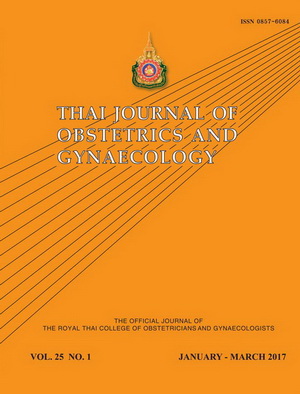The Effect of Umbilical Cord Clamping, Cutting and Milking in Term Infants Delivered by Cesarean Section: A randomized controlled trial
Main Article Content
Abstract
Objectives: To investigate the effect of umbilical cord milking (UCM) and immediate umbilical cord clamping (ICC) in term infants delivered by cesarean section.
Materials and Methods: This investigation’s design was a randomized controlled trial. One hundred and ten term pregnant women were recruited and allocated equally in the study and control groups. The study group (UCM) undertook umbilical cord milking toward the infant five times in 30 seconds after the umbilical cord was immediately clamped at a 20 cm, length from the newborn. The control group (ICC), by contrast, underwent immediate umbilical cord clamping without milking at 2 cm from umbilicus as the standard manner. Neonatal outcomes such as neonatal hematocrit (Hct) at 48 hours after birth, microbilirubin level, respiratory rate and length of stay in hospital were recorded.
Results: Neither neonatal outcomes nor neonatal Hct at 48 hrs revealed statistical differences between the two groups. There were no serious maternal and fetal complications in either group. The two groups showed no significant differences in demographic and operative data.
Conclusion: UCM at a point 20 cm from umbilicus had no effect in raising the Hct level at 48 hours following birth and no harmful effect in the term newborn delivered by cesarean section.


